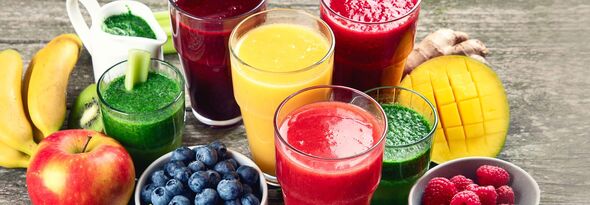Health
Cardiologists Warn: Popular Smoothies May Not Be Healthy

A recent analysis by health experts reveals that smoothies, often marketed as healthy beverages, may not deliver the nutritional benefits many consumers expect. The British Heart Foundation (BHF) clarified that these drinks do not substitute for whole fruits and vegetables, which provide essential nutrients and fiber.
One significant concern with smoothies is the way blending alters the natural sugars found in fruits. When fruits are blended, the cell walls break down, releasing sugars that are categorized as “free sugars.” According to the BHF, these free sugars behave similarly to added sugars in processed foods, which can contribute to weight gain when consumed in excess.
Despite these drawbacks, homemade smoothies may offer a healthier alternative. They typically contain less sugar and more fiber compared to pre-packaged options. For those looking to create their own smoothies, experts recommend combining a protein source—such as Greek yogurt, nut butters, or protein powder—with fruits, leafy greens, and a liquid base like milk or water.
Dietitian Jordan Spivak from Sibley Memorial Hospital emphasized the importance of understanding carbohydrate content in smoothies, as they can influence blood sugar levels. Spivak advised, “It is best to consult with a dietitian on what carbohydrate amounts are best for your personalized nutrition needs.”
Portion Control and Nutritional Guidelines
Portion size plays a crucial role in the healthiness of smoothies. The recommended serving size is 150ml, yet many smoothies sold in stores or cafés far exceed this amount. The BHF noted, “It can also be hard to keep an eye on how much you’re drinking because smoothies and juices are not as filling as unblended fruits because they contain much less fiber.” To manage portion sizes, consumers can consider sharing smoothies or saving some for later.
While many assume that blending different fruits and vegetables will help reach the daily goal of five portions, the reality is more complex. According to the National Health Service (NHS), a single 150ml glass of smoothie counts as just one portion of fruit or vegetables, regardless of the variety included.
Healthier Drink Alternatives
The BHF recommends prioritizing hydration with water as the best drink choice, followed by unsweetened hot beverages like tea or coffee. Sugar-free colas and squashes rank next on the list. In contrast, drinks high in sugar, such as ice cream milkshakes, hot chocolates, and energy drinks, are considered the least healthy options. A regular ice cream milkshake can contain twice the calories of a similar-sized full-sugar cola, and adding extras like chocolate or biscuits can significantly increase calorie counts.
As consumers navigate their beverage choices, understanding the nutritional implications of popular drinks like smoothies can help in making healthier decisions.
-

 Health3 months ago
Health3 months agoNeurologist Warns Excessive Use of Supplements Can Harm Brain
-

 Health3 months ago
Health3 months agoFiona Phillips’ Husband Shares Heartfelt Update on Her Alzheimer’s Journey
-

 Science2 months ago
Science2 months agoBrian Cox Addresses Claims of Alien Probe in 3I/ATLAS Discovery
-

 Science2 months ago
Science2 months agoNASA Investigates Unusual Comet 3I/ATLAS; New Findings Emerge
-

 Science1 month ago
Science1 month agoScientists Examine 3I/ATLAS: Alien Artifact or Cosmic Oddity?
-

 Entertainment5 months ago
Entertainment5 months agoKerry Katona Discusses Future Baby Plans and Brian McFadden’s Wedding
-

 Science1 month ago
Science1 month agoNASA Investigates Speedy Object 3I/ATLAS, Sparking Speculation
-

 Entertainment4 months ago
Entertainment4 months agoEmmerdale Faces Tension as Dylan and April’s Lives Hang in the Balance
-

 World3 months ago
World3 months agoCole Palmer’s Cryptic Message to Kobbie Mainoo Following Loan Talks
-

 Science1 month ago
Science1 month agoNASA Scientists Explore Origins of 3I/ATLAS, a Fast-Moving Visitor
-

 Entertainment2 months ago
Entertainment2 months agoLewis Cope Addresses Accusations of Dance Training Advantage
-

 Entertainment4 months ago
Entertainment4 months agoMajor Cast Changes at Coronation Street: Exits and Returns in 2025









